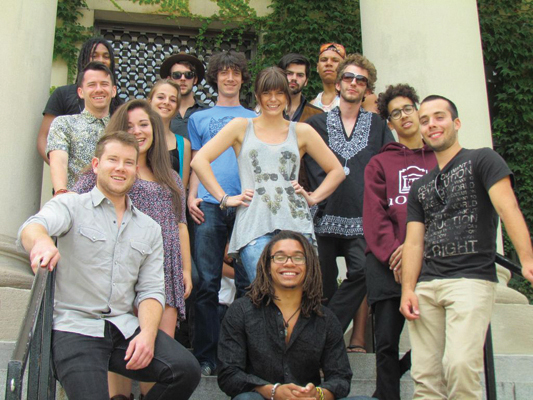Should Quebec re-elect?
Jean Charest sucks. As does anyone who handles a protest by taking away the right to protest. We should be glad he’s no longer there. But we should still be worried about the new Quebec Premier Pauline Marois. She is, after all, a separatist—and separatism is bad for students and even worse for Canadians.
McGill University PhD candidate Katie Pagnucco worries that Marois doesn’t respect or even want anglophone students in the province. Pagnucco is right to worry. Marois has been vocal about her intentions to introduce francophone policies that won’t be good for English speakers.
McGill graduate Joshua Stern doesn’t believe that a referendum is likely, but worries about the atmoshpere Marois is already bringing to Quebec.
“I find it very troubling that her bluster generated so much enthusiasm,” he says.
Preservation of Québécois culture means more than embracing the language and traditions. Although both Pagnucco and Stern have learned some French, they’ve found that embracing the language does not guarantee their acceptance by Quebecers. Since many out-of-province students come to Quebec to improve their French skills, this can be a serious problem.
Pagnucco’s research takes her along the St. Lawrence River looking for diving spots. Since it’s dangerous to dive at beaches and public boat launches, she ends up looking for private residences that will allow her river access.
Pagnucco speaks of her one experience of a man near Châteauguay.
“If you are an anglophone—even if you’re speaking French, and he can tell it’s not your native language—he charges ten dollars instead of five dollars to use the boat launch.”
One of Stern’s Acadian friends has trouble meeting girls in Quebec because he says they laugh at his accent. French is his native language, but the discrimination against non-Quebec Canadian French people makes the already nerve-wracking process of dating an even more humiliating experience.
I remember my own travels in Montreal. They were positive, and the city had a great vibe. But I wonder if there’s an angry undercurrent that Marois has the potential to unleash onto the anglophone community. It’s not like it hasn’t happened before.
French became Quebec’s official language in 1974 with the passage of Bill 101. While the legislation was a response to the predominance of English in the workplaces of a largely French population, the bill promoted discrimination against anglophones and First Nations who had been in the province for generations. With large fines for non-compliance, many individuals and businesses left Quebec.
I’m optimistic that Marois will lead the province to a better place than Charest did, but a bigger issue is at stake. Continuing to promote policies of inequality based on language is not something anyone in our country should support. Preserving the culture of one community should never come at the expense of another.






